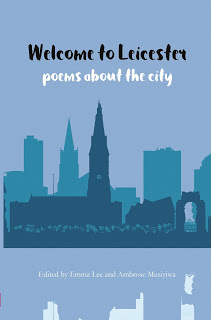So many scribes write about black-dog and blue-fog periods of their lives. Only a few manage to nail-it with the right words, though. Words need careful preparation, skill and authenticity to truly penetrate. Stephanie Rogers’s poems have all these in abundance. Her poems snag and prompt emotional recalibrations within the reader. I marvelled at the flashy-baited imagery that she deploys within this collection. Her deft poems strike a light at life when you’re in a dark place with the doldrums. The poems express this with acute honesty. Her writing is charged with brevity. She also articulates humour particularly well and juxtaposes it with morbidity, loss, despair and tragedy with great aplomb. This technique creates powerful undercurrents within her prose. There is great contrast within this collection. Wit is powerfully embedded within the text. A dark humorous tone resonates through this collection, which lifts it from the ordinary. The poems conjure the pain and beauty of relationships in a wry and sardonic way.
Her style suggested to me a kind of collective unconscious at work. The pain of the everyday is mapped out, as well as the thoughts that buzz around our heads that we seldom act upon, but all think about, day to day. The unsaid-said-unsaid of life: Stephanie Rogers digs on this territory with gusto.
“Another Way the Body Dies” explores this notion: “Part of me thinks I’ve shot someone,” the opening line from the first stanza, rings out with menace. How do you follow that? But she does with this magnificent observation further in the stanza: “My eyes always find what’s rotting around the room”, which I suggest is her deep despair expressed in whimsical fashion. Stasis is never far away in these poems. But this poem in particular mines a depressed state – someone confined to bed like the mafia hitting the mattresses in times of feud: “Back then I slept with a bullet under my tongue”, the final line of the last stanza, reads like a paean to Tom Waits, dirty-realist in its sensibility. That last line oozes a kind of guarded-despair.
Despite this emotional punch, it’s worth noting that all the poems pay close attention to form and have been sequentially worked upon. The aesthetics balance neatly from such fine attention. The lay out pleases the eye, as well as the mind.
Another poem that stands out is “Phone Call”, which is nakedly honest concerning the reactions to bereavement. We all can identify with it. News of a death is the poem’s subject matter, and it’s both poignant and honest. The narrative is spare and plain which increases its emotional resonance. The narrative is cathartic, writing heals and reading consoles.
It’s obvious that Stephanie Rogers has been deep-mining the self during the construction of these well-crafted poems. I admire the honesty, daring and the raw-punch within her writing. They remind me of Joni Mitchell’s Blue, which is an absolute corker! Enough said.
About the reviewer
Laurie Cusack is scraping at the underbelly of Irish Diaspora through a collection of short stories for his Creating Writing PhD at Leicester University. His writing influences include: John McGahern, Kevin Barry, Eimear McBride, Claire Keegan and Colin Barrett.






